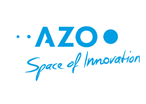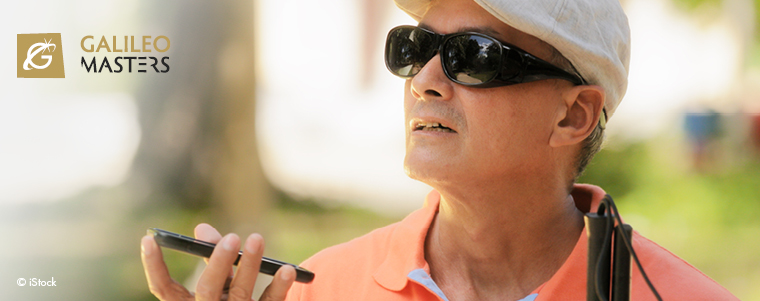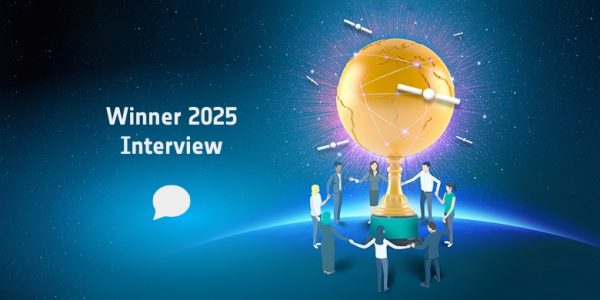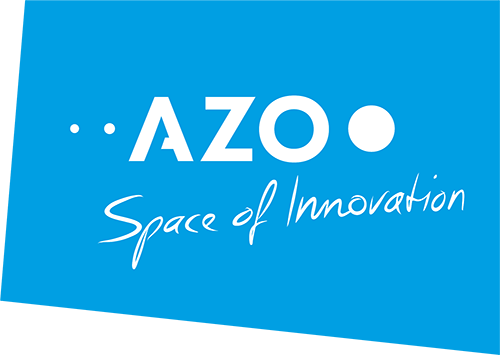Navigation systems nowadays treat pedestrians like slow vehicles. Routing takes place in the middle of the street, thus ignoring footpaths, pedestrian crossings, pavements, pedestrian areas and many other important aspects. This specific information is not even available in most systems. Therefore, pedestrian routing today feels more like a “vague suggestion” that assumes that the person in question is capable of finding himself passable pathways. Looking at the complexity of pedestrian navigation in urban environments, it is hardly surprising that standard navigation systems only offer minimal support.
While this situation is not satisfying, it gets even worse when it comes to the special needs of blind or visually impaired people or wheelchair users: Their needs are simply ignored. Planning a safe route in an unknown environment is extremely important for blind people, even better if this route is also short, easy to find, has the least number of crossings or whatever criteria might be important. For wheelchair users, barrier-free entrances or differences in elevation might be important.
WHO states that there are 285 million blind or severe visually impaired people worldwide. There are also approx. 85 million wheelchair users worldwide. This group of users’ needs secure and accurate guidance and navigation.
Last but not least, all the other pedestrians will also benefit from reliable and optimised navigation: If routes that can only be used by pedestrians are taken into account, the path to be walked can be adjusted dramatically.
Winner of the Galileo Masters 2018 Baden-Wuerttemberg Challenge
Routago, the Galileo Masters winning solution of the 2018 Baden-Wuerttemberg Challenge, addresses these needs by providing the first globally available navigation system optimised for blind and visually impaired people, wheelchair users and pedestrians in general.
Routago takes into account street sides, pavements, pedestrian crossings, and a lot more information in order to determine a safe route to the desired destination and to optimise the result for the specific needs of the user. Of course, the startup is not the first attempt to offer safe pedestrian routing to blind people. Other approaches have tried to address these problems, but most of them were part of academic research and never made it onto the market. Others depended on extremely detailed mapping of the surroundings and were only available for a (very limited) number of city centres. The company uses a different, more general approach: Based on data from OpenStreetMap, Routago analyses, extends and generates a path network containing all the data needed for pedestrian routing. This process takes place dynamically whenever routing is required. Even more important: While former approaches focused on the routing itself, the Galileo Masters 2018 winners address all aspects of navigation and guidance combined with a marketplace that is open for extensions and add-ons.
While working on different research projects with the Karlsruhe Institute of Technology (KIT), the team behind Routago was in touch with visually impaired people and gained an insight into their daily routine. It became quite clear which components would drastically improve the daily life of blind people and, in 2016, a research project was started that focused on the development of such a navigation system called SafeRoute. The project had to deal with many uncertainties as there were no comparable systems available. Blind people and experts such as mobility coaches were part of the team from the very beginning, which is vital for the success of such a project. Also, a flexible and extensible system was desired so requirements identified in a later stage of the project could still be taken into account. This led to a platform were different development teams can contribute software components and load these components into the system dynamically while defining the look and feel, and the interaction between the components.
Precise positioning turned out to be one of the most important components of the solution and the Galileo satellite network will therefore substantially improve the quality of the navigation. In 2018, the initial version called SafeRoute was recognised as the winner of the Galileo Masters Baden-Württemberg Challenge and the solution was also presented at the Galileo Masters awards ceremony during European Space Week in Marseille. With high-precision satellite positioning available, the routing technology opens up new business segments besides pedestrian navigation, e.g. for navigating autonomous vehicles for door-to-door delivery.
Routago – a system that really meets the needs and requirements of blind people
Over time, the system evolved and modules for routing, navigation, object recognition, machine learning, voice output, sonification and many other necessary technologies were added. The whole design and functionality, e.g. spoken instructions, have been developed and evaluated over and over again by blind people in order to achieve a system that really meets their needs and requirements. Voice output and sonification are good examples of the challenges the startup has to face. Since blind people rely on voice output, the navigation system has to “talk in the right moment” and “say only what is really necessary”. Easy to understand, but hard to implement: Which instructions are unambiguous? Should instructions be repeated? When? How often? Sonification is another concept that is hard to understand for normal-sighted people. Sonification aims to translate the surroundings into sounds. In the case of pedestrian navigation, the direction a person has to walk to might be represented by a pilot-tone. Barriers might be represented by a different sound, the pathway by another third sound, and so on. So, what is the best way to combine these sounds into a distinguishable, yet not overloaded, sound mix? The fine-tuning of this functionality is an ongoing process and, thanks to the platform, this can be done anytime and without waiting for a new software release as is necessary for other software lifecycles.
Special attention was paid to the routing itself and contains algorithms based on machine learning for enhanced guidance. This part is a key factor for the success of Routago: Each group of users’ needs its own optimised routing, but the criteria for each group are extremely detailed. As described earlier, pedestrian routing is quite challenging and the routing algorithm needs to be improved all the time. Therefore, several mechanisms such as automated test-cases in combination with user-feedback and more are used for machine learning and the automated improvement of the routing and navigation process.
As already described, Routago has been designed as an open platform. This has dramatically reduced the complexity the core development team has had to deal with. While the team has concentrated on main components such as navigation and user interaction, third parties have been able to extend the system with helpful and necessary devices and add-ons, such as mobile braille interfaces, bone conduction earphones, or vibration devices for direction indication. A well-designed and documented API ensures that third parties can integrate their devices into Routago, leading to application scenarios that were unthinkable when starting the project.
In 2019, the continued development led to Routago, a complete navigation solution for blind and visually impaired people, which will be launched at the end of 2019.
More information can be found on our website routago.de
About the team:

The managers Stefan Siebert and Gerd Güldenpfennig founded iXpoint, the company behind Routago, in 1991. Having worked as a software development and consulting company for many years, the company has focused on developing mobile applications since 2007.
Research has always been an important part of the company’s efforts. Through this, iXpoint is working on state-of-the-art technologies such as machine learning, image processing, virtual and augmented reality, and many others. Prof. Ritterbusch, Harald Kucharek and Patrick Frank form the core development team behind Routago with expertise in scientific methodology, system concepts and software development.




